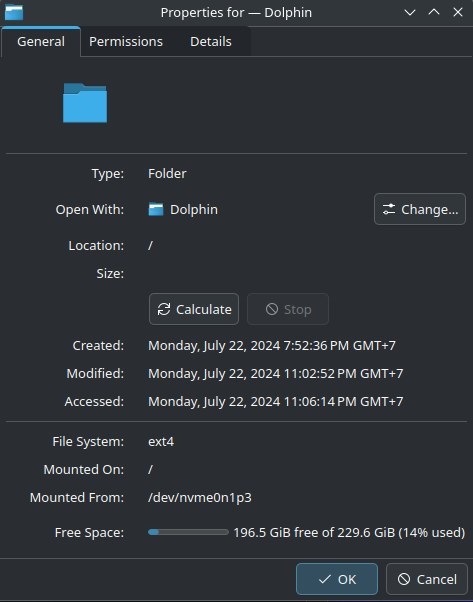this post was submitted on 22 Jul 2024
5 points (100.0% liked)
linux4noobs
1361 readers
1 users here now
linux4noobs
Noob Friendly, Expert Enabling
Whether you're a seasoned pro or the noobiest of noobs, you've found the right place for Linux support and information. With a dedication to supporting free and open source software, this community aims to ensure Linux fits your needs and works for you. From troubleshooting to tutorials, practical tips, news and more, all aspects of Linux are warmly welcomed. Join a community of like-minded enthusiasts and professionals driving Linux's ongoing evolution.
Seeking Support?
- Mention your Linux distro and relevant system details.
- Describe what you've tried so far.
- Share your solution even if you found it yourself.
- Do not delete your post. This allows other people to see possible solutions if they have a similar problem.
- Properly format any scripts, code, logs, or error messages.
- Be mindful to omit any sensitive information such as usernames, passwords, IP addresses, etc.
Community Rules
- Keep discussions respectful and amiable. This community is a space where individuals may freely inquire, exchange thoughts, express viewpoints, and extend help without encountering belittlement. We were all a noob at one point. Differing opinions and ideas is a normal part of discourse, but it must remain civil. Offenders will be warned and/or removed.
- Posts must be Linux oriented
- Spam or affiliate links will not be tolerated.
founded 1 year ago
MODERATORS
you are viewing a single comment's thread
view the rest of the comments
view the rest of the comments

You can try using
# du -h -d 1 /to locate the largest directory under/. Once you've located the largest directory, replace/with that directory. Repeat that until you find the culprit (if there is a single large directory).EDIT (2024-07-22T19:34Z): As suggested by @[email protected], you can also use a program like Filelight, which provides a visual and more comprehensive breakdown of the sizes of directories.
You can use Filelight which is much simpler and more visual.
ncdufor the terminal. Also enables you to delete folders/files.gdu is another alternative. It is sometimes faster than ncdu for me.